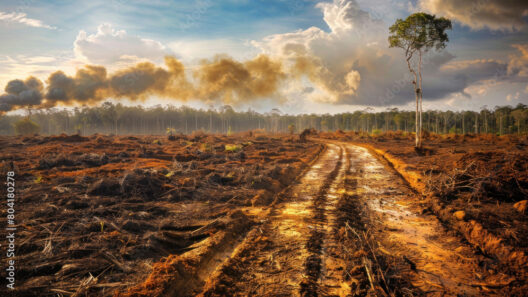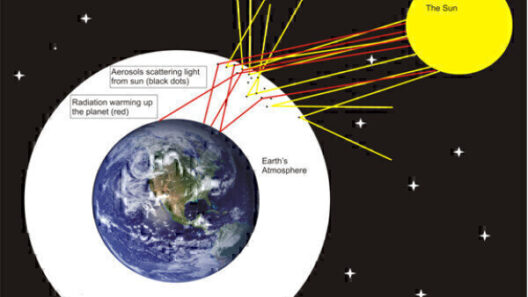Global warming represents one of the most formidable challenges facing humanity today. The ramifications of unchecked climate change include rising sea levels, intensified weather patterns, and the threat to biodiversity. However, collective action can still make a significant difference. This discourse aims to elucidate actionable strategies to curtail the impacts of global warming and promote a healthier planet.
To commence, it is crucial to comprehend the root causes of global warming. The primary driver is the accumulation of greenhouse gases in the atmosphere, predominantly carbon dioxide (CO2) due to fossil fuel combustion, deforestation, and industrial processes. Other contributors include methane emissions from agriculture and waste, along with nitrous oxide from fertilizers. Understanding these origins is pivotal in formulating effective countermeasures.
One of the most accessible ways to mitigate climate change is through energy conservation and efficiency. Individuals and organizations can implement various tactics to reduce energy usage. This includes upgrading to energy-efficient appliances, utilizing LED lighting, and adopting smart thermostats. Moreover, reducing unnecessary energy consumption by turning off devices when not in use can have a pronounced effect on reducing individual carbon footprints.
Transitioning to renewable energy sources is another essential step. Solar, wind, and hydroelectric power offer sustainable alternatives to fossil fuels. Governments and private sectors are increasingly investing in renewable infrastructure, resulting in reduced reliance on coal and oil. Individuals can participate by installing solar panels on their residences or by choosing a green energy provider. These choices not only contribute to the grid but also promote a broader cultural shift toward environmental sustainability.
Transportation is another major contributor to greenhouse gas emissions. Thus, rethinking transportation methods can have a profound effect on climate change. Carpooling, utilizing public transportation, biking, and walking are viable alternatives to reduce vehicular emissions. For those who require a vehicle, consider opting for electric or hybrid models. Supporting policies that promote clean public transit options can also facilitate this transition on a larger scale.
Conserving natural ecosystems is an equally vital component in the fight against global warming. Forests act as carbon sinks, absorbing CO2 and mitigating its concentration in the atmosphere. Deforestation, driven by agriculture, urban expansion, and logging, reduces this critical natural service. To counteract this, individuals can support reforestation projects, advocate for sustainable land-use policies, and choose products made from sustainably sourced materials.
A significant aspect of this discourse focuses on sustainable agriculture. Traditional farming practices can contribute substantially to greenhouse gas emissions through fertilization and livestock production. Adopting permaculture techniques, organic farming, and agroforestry can enhance biodiversity, improve soil health, and reduce emissions. Consumers also play a role by opting for locally sourced and seasonal produce, which reduces the carbon footprint associated with food transportation.
Another factor in combating climate change lies in waste management. The increase in landfill sites contributes to methane emissions, a potent greenhouse gas. Practicing the three Rs—reduce, reuse, recycle—can significantly diminish waste generation. Individuals should strive to minimize single-use plastics and support initiatives that promote circular economy principles, focusing on resource efficiency and waste reduction.
Advocacy plays a critical role in influencing policy changes that can lead to substantive environmental reforms. Supporting legislation aimed at limiting emissions, protecting natural resources, and encouraging sustainable practices can propel systemic change. Engaging in local activism, signing petitions, and participating in community discussions can amplify the voices demanding action against climate change. Mobilizing public opinion is essential for fostering an environment conducive to environmentally friendly policies.
Education stands as a formidable tool in raising awareness regarding climate change. Promoting environmental literacy within communities can empower individuals to take informed action. Schools and institutions can incorporate sustainability education into their curricula, instilling a sense of responsibility and stewardship for the planet in the next generation. Workshops, seminars, and online resources can also facilitate knowledge sharing regarding sustainable practices.
Individual actions, though seemingly small, can accumulate to effect significant change. Engaging in simple acts like planting trees, maintaining gardens, or supporting environmentally conscious businesses can translate personal values into action. Initiatives such as community clean-up days foster collaboration and reinforce a communal commitment to environmental stewardship.
The importance of international cooperation cannot be overstated. Climate change knows no borders; therefore, global partnerships are imperative. International agreements, such as the Paris Agreement, represent collective efforts to limit global temperature rise and reduce greenhouse gas emissions. Participating in global movements fosters solidarity and mutual accountability in combating climate change.
In conclusion, while the specter of global warming looms large, the path to a healthier planet is illuminated with actionable steps that individuals and societies can take. Energy conservation, renewable energy adoption, sustainable transportation, ecosystem preservation, responsible agriculture, effective waste management, advocacy, education, and international cooperation are interconnected strategies that can collectively result in meaningful change. Each small effort is a facet of the larger mosaic dedicated to safeguarding Mother Earth for future generations. Our actions today will reverberate into tomorrow, underscoring the urgent need for a unified commitment to climate action that honors our shared home.








